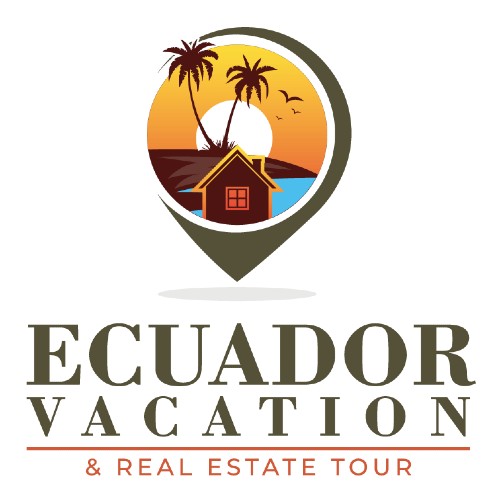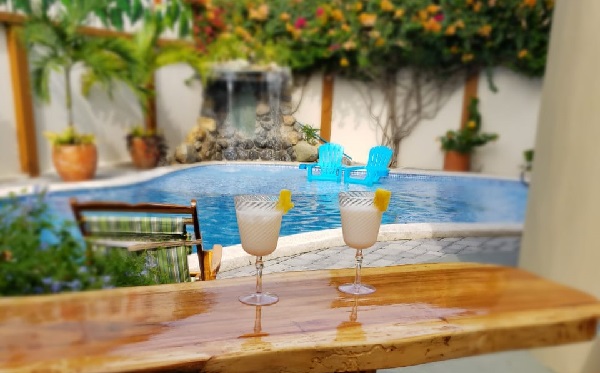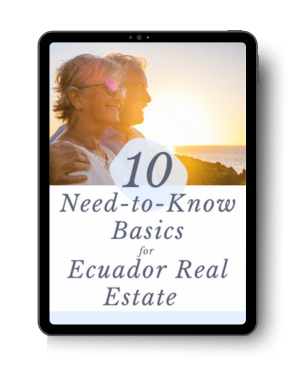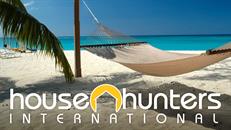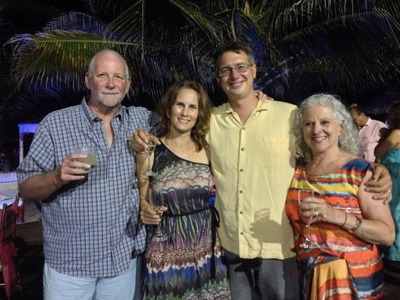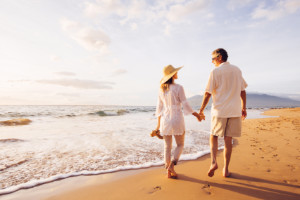Ecuador Frequently Asked Questions
Purchasing property as a foreigner in Ecuador; Visiting Ecuador; Living in Ecuador; and Related Subjects
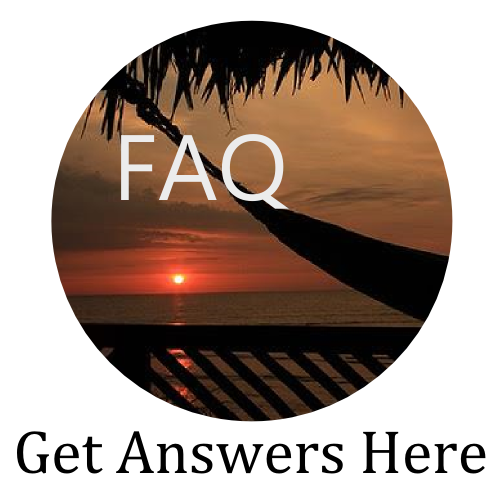 |
FAQ TOPICSReal EstateAbout Ecuador's Central CoastHealth and SafetyMoneyCosts of LivingDaily NecessitiesTravel LogisticsRelocating to Ecuador |
|
|
1. Real Estate1.1 Can foreign residents buy property in Ecuador?Yes! - Ecuadorian Law grants foreign citizens the same property ownership rights as nationals. You can purchase property directly in your name or in the name of a business (e.g. an LLC). There is no need to have a third party involved or start an Ecuadorian trust to hold property as in some other countries. All you need is your passport as a form of ID to complete a purchase transaction.
1.2 Are properties purchased in Ecuador fee simple or leasehold ?Properties bought and sold in Ecuador a fee simple, meaning you own the land and any improvements made to that land outright and in perpetuity.
1.3 Can I get clear title to the land/property?We always advise our clients to hire their own bilingual lawyer to represent their interests (we can make recommendations for several bilingual attorneys). Before you make a purchase, the appropriate paperwork must be gathered including an official "Solvency" document from the Property Registry's Office showing that the deed is free and clear and eligible to be transferred from the previous owner's name to yours. Once purchased, the property deed will be registered in your name in the notary, at the municipality, and with the Property Registry Office (see below for more details on the buying process).
1.4 What is the buying process like?The purchase process can vary greatly depending on the parties involved. Closing can take as little as a week or up to a month plus depending on the circumstances of the property, buyer, and seller. In general most offers and negotiations are verbal. When both parties come to an agreement on a sales price and terms then a private purchase reservation agreement is often signed between the parties to put the agreement in writing and a small good faith deposit is made. At that point, the buyer is connected with a bilingual attorney to do the due diligence on the property and prepare the closing documents. A Notary Public oversees the formal closing, inspects documents to ensure they are complete and up to date, and documents the legal transfer of title from the seller to the buyer. Note: In Ecuador, a Notary is an appointed official (Usually a professional lawyer who is well known) whose office acts as the keeper of the Public Record. Typically, a bank transfer is made directly from the buyers' account directly to the seller upon signing or a certified check is provided to the seller upon signing. Once the new title is signed, the property is officially passed to the new owner's name and the title is registered with the authorities and a copy is provided to the new owner.
1.5 Can I purchase a property from abroad?Yes, it is possible to purchase property from abroad. Of course, we always recommend coming in person when possible to inspect the property yourself. However, if that is not an option, there are basically two means of purchasing properties from afar. POWER OF ATTORNEY: One option is to assign a limited power of attorney (POA) to a legal representative in Ecuador who will purchase the property on your behalf. This POA document is drawn up by an Ecuadorian lawyer in Spanish (along with an English version if you aren't fluent in Spanish). The document would need to be notarized and apostilled/legalized in your home country and then mailed to Ecuador (via DHL). Some US states and countries would also require the document to be translated to English by a certified translator. OFFICIAL AGENT: Another purchase option is to name an "agente oficioso" or official agent who buys the property on your behalf. The purchase must be legally accepted by the buyer before it may be resold or used for establishing residency, etc. We've helped our clients successfully purchase properties from afar using both approaches. The POA requires more paperwork up front to get the POA document legalized for use in Ecuador. The official agent approach is quicker up-front but has more expenses and paperwork later at the time of the legal acceptance of the purchase.
1.6 Is financing available?We have two answers to that question. Yes, we have helped arrange short-term financing through direct seller-financing. Obtaining traditional mortgages and the like in Ecuador are more complicated. First off, bank interest rates in Ecuador are often high, as in 12% and upwards and require an extensive previous banking history in the country. We recommend anyone interested in financing to get in touch with us directly and give us an idea of your real estate needs and an estimate of your down payment and monthly payment budgets and we can try to match you to a property where the owner is interested in offering financing. Most owners won't offer financing in their promotions but may be open to it with a significant down payment.
1.7 Why is the municipal value of the property so much lower than the purchase price?The municipal value of a property is the tax appraiser's value specified on the property deed. This value is usually only a fraction of the actual purchase price or market value of the property. The municipal value, or the assessed value, is used to calculate property taxes which explains why annual taxes on a $100,000 beachfront condo only come to about $100. One of the great benefits of purchasing real estate in Ecuador are the low costs for owning and maintaining property as compared to other countries.
1.8 Are building permits required to build or renovate?Yes, building permits are required by the governing municipality and setbacks from roads (real and planned) and neighboring constructions are enforced. Your construction manager in charge of managing the construction should take care of obtaining any necessary permits.
1.9 How much would it cost to build a house?A custom home can typically be built and finished with basic water/electric fixtures for approximately $65/sq. ft. (including design/material/labor costs). These costs of course vary with quality of finishings and with more complicated designs and layouts.
1.10 How much are property taxes?You can generally expect to pay around $100/year in property taxes for a built beachfront property. For bare land, taxes are far less.
1.11 Where are your properties located?We have property listings that span much of the coast of Ecuador; however, the majority of our properties are located in the Manabi province between Manta and Canoa. Please check out our Maps page for more in depth details.
end faq |
|
|
2. About Ecuador's Central Coast2.1 What is the climate like?It really does not get much better than the climate found on Ecuador's Central Coast! Temperatures year-round are 70-90 degrees F. The coast of Ecuador has two seasons: wet and dry. The rainy season is approximately December - April and paradoxically this is also the sunniest time of the year (think morning rain with the sun coming out full force in the afternoon). The dry season is typically overcast yet still warm although there are also many days of full sunshine.
2.2 What are the beaches like?The beach characteristics in the region where we work vary considerably depending on location but the waters are warm and swimmable year-round. The best surf in the Central Coast can be found in Canoa during the months of December to April. Trash on the beach can sometimes be an unsightly issue in some areas, especially after large holiday events such as Carnaval. However, recycling of plastics and a growing consciousness to promote investment and tourism has led to cleaner beaches in many areas. The beaches in Canoa and "the Boca" area of Crucita/San Jacinto are sandy, flat and walkable, even during high tide. San Clemente has a wide, stunning sand beach at mid and low tides and extensive tidepools to explore at very low tides. In the southern end of Crucita, the beach often contains rocks and pebbles (although the amount changes substantially throughout the year). There are tide pools along rock shelves during very low tides where fishermen collect lobsters and oysters. It is uncrowded and undeveloped for miles until you arrive to Jaramijo, just north of Manta. Just be sure to time your walk as the tide is falling. Similarly, there is still very little development north of beautiful San Clemente until you reach Bahia de Caraquez, promising miles of coastal solitude (again, only at a falling tide!).
2.3 Is there good fishing?Yes-In fact, Manta is known as the tuna capital of the world. Other fish commonly available are mahi-mahi, swordfish, seabass and other tasty delights, usually costing somewhere around $3/lb or less for steaks, fresh off the fishing boat (and often skillfully filleted with a machete). Sport fishing tours are available out of Manta and Bahia.
2.4 Are there lots of mosquitoes and other bugs?If you live along the beachfront where there is a consistent onshore breeze, bugs aren't a real problem, especially compared to other places we've lived, like Florida! That said, insects such as mosquitoes can be a nuisance, particularly during the rainy season (Dec-May). Mosquito-borne illnesses founds along the coast include dengue, zika and chikungunya so while not especially prevalent, it is nevertheless important to use mosquito repellent and/or wear lightweight long-sleeved shirts and pants in the evenings.
2.5 When is whale watching season?Humpback whale-watching season is from June-October. Local tours are available at the Boca in San Jacinto and in San Clemente.
end faq |
|
|
3. Health and Safety3.1 Are these areas safe?These small coastal communities tend to be very safe. However, as always, it is important to practice common sense. More caution Women should not walk alone at night in isolated areas. You should keep expensive belongings out of sight on your person, in homes, and in vehicles. Flagrant displays of wealth attract unwanted attention.
3.2 Are there hospitals nearby?There are small government and private clinics and/or hospitals in most rural towns in this area (Charapoto, Rocafuerte, Crucita, San Jacinto, San Clemente, Bahia). Better equipped and higher quality care is available in hospitals and clinics in the larger cities of Manta and Portoviejo. A new hospital is currently being built in Bahia. Both Guayaquil and Quito have modern hospitals. We once used Hospital Metropolitano for a medical emergency in Quito and were very impressed by the quality of care and affordability.
3.3 What would I do about medical insurance?The cost of medical treatment in Ecuador is extremely inexpensive or even free if you receive care at a public hospital. However, many people choose to ensure that their insurance covers them while they are living and/or traveling abroad. Here is a link with a few different international insurance plans: http://www.internationalcitizens.com/health_insurance/ There are also many Latin American based policies, some which offer coverage in the US as well.
3.4 Are there any vaccines that are necessary?There are no required vaccinations to enter the country but it is s a very good idea to have vaccinations for tetanus, Hepatitis A/B and typhoid. Malaria is not an issue along the central coast of Ecuador. However, if you plan to spend time in the Oriente (the lowland jungle) you should consider purchasing anti-malaria meds and getting a Yellow Fever vaccination. While Malaria is not an issue along the Central Coast, be aware that there are incidences of dengue fever and chikungunya, both of which are mosquito-borne diseases so be sure to bring mosquito repellent and consider wearing long sleeves and pants in the evenings.
3.5 Can I get vaccinations in Ecuador?Vaccinations are very inexpensive in Ecuador so you might consider getting them here to save money. ]They are also available for free in most "sub-centros de salud," which are government-run health centers that are in each town. However, each clinic has certain days when vaccinations are given so you have to coordinate in advance.
end faq |
|
|
4. Money4.1 What is the currency used?The U.S. dollar is the currency of Ecuador.
4.2 What are your suggestions for bringing money?Cash –bring money in small denominations, nothing over 20 with plenty of 10s, 5s and even 1s. You will quickly discover that it is difficult for taxis, restaurants, vendors, etc. to provide change for 10 and 20 dollar bills. ATMs are by far the best way to get money. Be sure to let your bank know ahead of time that you will be in Ecuador so they don't block your account. Be sure to ask what foreign transaction fees you will be charged. To limit these charges as well as the number of bank trips you need to make, you may want to consider asking your bank to raise your daily withdrawal limit (although sometimes the maximum withdrawal might end up being dictated by the specific ATM machine you are using). If you plan to purchase property during your visit in Ecuador, you should check with your bank to determine whether any arrangements need to be made in advance for making international wire transfers from abroad.
4.3 Can I bring traveler’s checks?Don’t bother with traveler’s checks—it is extremely difficult to find banks that will cash them.
4.4 What credit cards are accepted?Higher-end hotels, restaurants and stores will usually accept credit cards with Visa and Mastercard logos. Diner's Club is also widely used.
4.5 Is tipping common?In Ecuador, tipping is not common nor is it expected, especially in the cases of taxis and waiters (except for higher-end restaurants where it is often added as 10% service charge). We cover tipping and other cultural norms in our extensive "Know Before You Go" guide. If you have not yet received yours, you can download it for free HERE.
end faq |
|
|
5. Costs of Living5.1 What is the price of gas and electricity?We pay about $0.09/kW-hr for electricity. Propane is currently sold for about $2.50 for a 30 lb tank and is commonly used for kitchen stoves, clothes dryers, and on-demand water heaters because of its affordability. However, gas prices may increase sharply in the future when gas subsidies are eliminated in favor of expanding the country's hydroelectricity.
5.2 What is the price of water?We currently pay $0.83/cubic meter in San Clemente and use roughly 30 cubic meters per month.
5.3 What does gasoline cost?Gas prices are regulated by the government and is $2.40/gallon; diesel is $1.80.
5.4 Is it cheap to buy a vehicle in Ecuador?It is considerably more expensive to buy a new or used vehicle here. The good news is that used vehicles if they're cared for tend to hold their value so you can sell the vehicle for about the same price you bought it for a couple years prior. You will be charged high import taxes for bringing your car from abroad and only relatively new cars (4 years old or less) are allowed.
5.5 Can I live on a $1000/month?It is possible if you tend to live very frugally. For those with a higher budget and looking for a high quality of life, $1,200/month can pay your long-term rent of a high-end beachfront condo. See our Ensenada Beachfront Condo Rentals page. Generally speaking, $2,000/mo for a couple would allow you to live very comfortably.
end faq |
|
|
6. Daily Necessities6.1 How is access to potable water?Water access: Each home has a cistern that is filled a couple of times per week with city water. In more remote areas not yet connected to city water, cisterns are filled as needed by a water truck. From the cistern, a water pump is used to deliver water to the home under pressure. The water comes from a treatment plant but precaution is advised and the water should not be considered potable!
6.2 What voltage is used there?The voltage used here is 110V (same as U.S.). For higher loads, like air conditioning, 220V is available. Outlets are typically compatible with US 3-prong plugs (although you might see 2-prong outlets as well, so carry an adaptor for laptops, etc. if needed).
6.3 Is internet access fast and reliable?Expanded access to fiber optic in last few years has increased the speed and reliability of internet on Ecuador's coast. For example, local service providers offer monthly plans of 100 Mbps for $23/month.
6.4 What do you do for making and receiving phone calls?You can purchase a prepaid SIM card upon your arrival into Ecuador. There are 2 main cell provider companies: Claro or Movistar. Either will work. Whatsapp is widely used for communication throughout Ecuador.
6.5 Where do you go for buying food?Many towns have weekly markets for buying fresh produce, meat, etc. There are also "roving markets", e.g. trucks or carts selling produce on a regular basis. Once they know you're a regular buyer, they'll stop by roughly the same day and time each week. Very handy! For mid-week shopping of basic supplies you can visit the small "ma and pop" shops available in any town. These shops often sell their goods through a window and have a deceptively large amount of inventory on hand that you just have to know to ask for, including milk, eggs, chicken by the pound, flour, sugar, instant coffee. And finally, for buying less common or higher end foods (think dark chocolate, whole grain bread, good coffee, goat cheese, plain yogurt, ground beef, etc.) there are major grocery stores (Supermaxi, Mi Comisariato) in the larger cities of Bahia, Portoviejo and Manta.
end faq |
|
|
7. Travel Logistics7.1 How do I arrive to where you are located?You can arrange an international flight into either the Quito (UIO) or Guayaquil (GYE) airport. Arriving to San Clemente from Quito: You can take a flight into the Manta (MEC) airport which is ~40 min in duration and ~$90 each way. From Manta it is about an hour drive north to San Clemente. You can take a bus, rent a car, or hire a taxi ($25). From Guayaquil to San Clemente: There are no flights to Manta from Guayaquil. It is roughly a 3.5 hour drive by either by rental car or taxi. We are happy to help you make travel arrangements.
7.2 Are there any tours available?We now offer an all-inclusive, vacation & real estate tour package. Our tour package offers an immersive, toes-in-the-sand crash course on coastal Ecuador that will be tailored to your individual needs.
7.3 Do I need a visa to visit Ecuador?All you need is a valid passport which entitles you to 90 days in country as a tourist. You can request an extension of another 90-180 days. You can also apply for residency (for details see below). ***IMPORTANT NOTE: Be sure you have at least 6 months left on your passport before it expires or else you may not be able to leave your home country, even if you plan to be gone for only a couple of weeks!***
7.4 Can I rent a car in Ecuador?You can rent a car at or near most airports in Ecuador but it is generally more expensive than in the U.S. once you add on insurance. Be sure to use Waze or Google Maps and download your route ahead of time. Signage tends to be poor and traveling through major cities can be complicated affair. We tend to recommend using international rental companies like Budget due to client stories of additional credit card charges made using a couple of smaller, local companies. Another option is to hire a driver to avoid having to deal with the chaos of city driving (we can make recommendations for reliable, bilingual drivers).
7.5 Where do you recommend we stay while we are in the area?Please check out our Rentals page for renting a stunning beachfront condo (weekly, monthly and yearly options available). For visits of less than 6 days, we recommend you stay with Andrew and Carol at Casa de Terrazas Bed & Breakfast. Or, for a truly immersive experience, we highly recommend our "Taste of Ecuador" Vacation and Real Estate tour.
7.6 Can you recommend some helpful resources for traveling in Ecuador?Be sure to download our up-to-date "Know Before You Go" Resource Guide which is chock full of useful information for planning your visit, including a packing list, cultural norms, and other important information. Get your free copy here. If you want to skip the hassle or insecurity of piecemealing your exploratory visit to Ecuador, check out our all-inclusive tour package.
end faq |
|
|
8. Relocating to Ecuador8.1 How do I get my Ecuadorian residency?There are numerous options for obtaining Ecuadorian residency. The two most common options are a pensioner's visa (requires proof of receiving a monthly pension) and an investor's visa (requires a minimum investment in either in municipal property value or a bank account). There is also now a visa for Digital Nomads. Contact us and we can make suggestions for a bilingual attorney to guide you with the process.
8.2 Can I bring my pets?There are 2 options for bringing your pets: (1) as cargo and (2) as baggage. The USDA's website provides criteria for traveling with your pet to Ecuador.
8.3 Do people choose Ecuador as a retirement destination?Yes! Ecuador continues to rank as a top retirement destination in the world. Here are a couple of links: http://www.retirepedia.com/retire-in-ecuador.html https://www.cnbc.com/2021/01/06/best-budget-friendly-places-to-retire-in-2021-report.html
8.4 Is Ecuador a good place to invest?Ecuador is considered one of the top locations in the world for overseas real estate investment. Not only do foreigners have the same property rights as Ecuadorian citizens and pay minimal property taxes but property values are still very low while infrastructure has improved dramatically. Feel free to contact us to receive information regarding investment ideas and opportunities here along Ecuador's coast.
end faq
|








